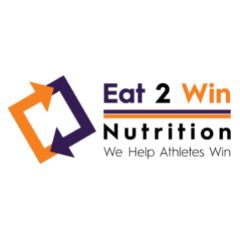Sports Nutrition (SN) Symposium 6.0
Thursday, February 2 @ 7 pm CT
Carbohydrates are crucial for optimal performance in athletes. There are many benefits to knowing the amount of carbohydrate intake that each athlete needs and the most ideal schedule for consumption. This presentation will discuss the usage and benefits of carbohydrates during exercise.
Q&A for Session #8
- Do you have a preferred NSF product you like to use?
- Anything that is really high in sucrose with low fat for intra workout carbohydrate source.
- Dextrose is glucose, correct? So, is that better than sucrose? What are your thoughts on high fructose corn syrup?
- All are the same in the terms of oxidation rate. Which one is your athlete willing to consume and afford.
- What are your thoughts on maple syrup? How rapidly oxidized is this carb?
- Really high in fructose just like honey. Slower release into the bloof sugar. Oxidized at a slower rate. Post exercise: honey and maple syrup is fine.
- What do you think about UCAN?
- Generation UCAN is a super starch, low glycemic index. Like honey, slow response like gels.
- Sucrose is 50% fructose, so I’m curious as to how it could be oxidized as quickly as glucose?
- In the small intestine as it is being absorbed the glucose can help increase the rate ob asborption.
- What if an athlete doesn’t know there VO2 max? How can you determine who benefits the most from fuelling with CHO?
- You would go by intensity of activity. Go by how will you can talk during exercise. No talking at all is >75% VO2 Max.
- What are your thoughts on athletes using continuous glucose monitors during their workouts?
- It can be information overload. What are you hoping to gain with it on vs certain performance factors that you can measure.
- How much glycogen (CHO calories) might a Keto athlete's body generate via gluconeogenesis?
- Very little; if they are in true ketosis they will generate next to none.
- Some says that if you eat simple carbs before exercise (approx.45-60min before), the insulin will increase which is dangerous to performance. Is it right? But actually, we need something simple to immadiately produce as energy.
- Athletes can consume a simple sugar 30mins before and they may see a small spike but it will drop due to insulin sensitivity.
- If a client is looking to lose weight- in regards to consuming CHOs ~20 mins into the workout- what do you recommend they eat prior to the workout for energy?
- If it is a weight loss based client then 2 hours before workout eat a normal meal (protein, vegetable, complex carb).
- Some products boast very little to no simple sugars, and primarily complex carbs. Will the body use the complex carbs similarly to the simple?
- No complex carbs and sugars are oging to be broken down differently due to fiber. During exercise you want the insulin spike.
- What are your thoughts on whole food gels? For example, those that use fruit/juice/puree as the primary carb?
- Those are good for intra-workout CHO, especially if your athlete wants to stay away from pure sugar.
- What do you thing about making the recommendation of mixing whey protein powder and a dry gatorade powder for intra/post workout supplement for weight lifters?
- During exercise it could be closer to 4:1 depending on the goal of the athlete. Weight loss would be closer to a 2:1 ratio.
- Can you touch on sugar use outside of workouts? Should complex carbs be prioritized? Or, does it really matter the carb type as long as we keep within our determined range.
- The concept of IIFYM is a good basic way to think about.
- What would you recommend for snack compositions for dancers at competitions - they have short performances maybe 2 minutes and sometimes perform within 30 minutes or 2 hours.
- Chewy granola bars - 15g cho and 1g fat that is an easy snack; children can have one and adults can have a couple. It is a low volume snack that won't put a lot in the stomach at one time, but packed with the sugar they need.



Facebook comments